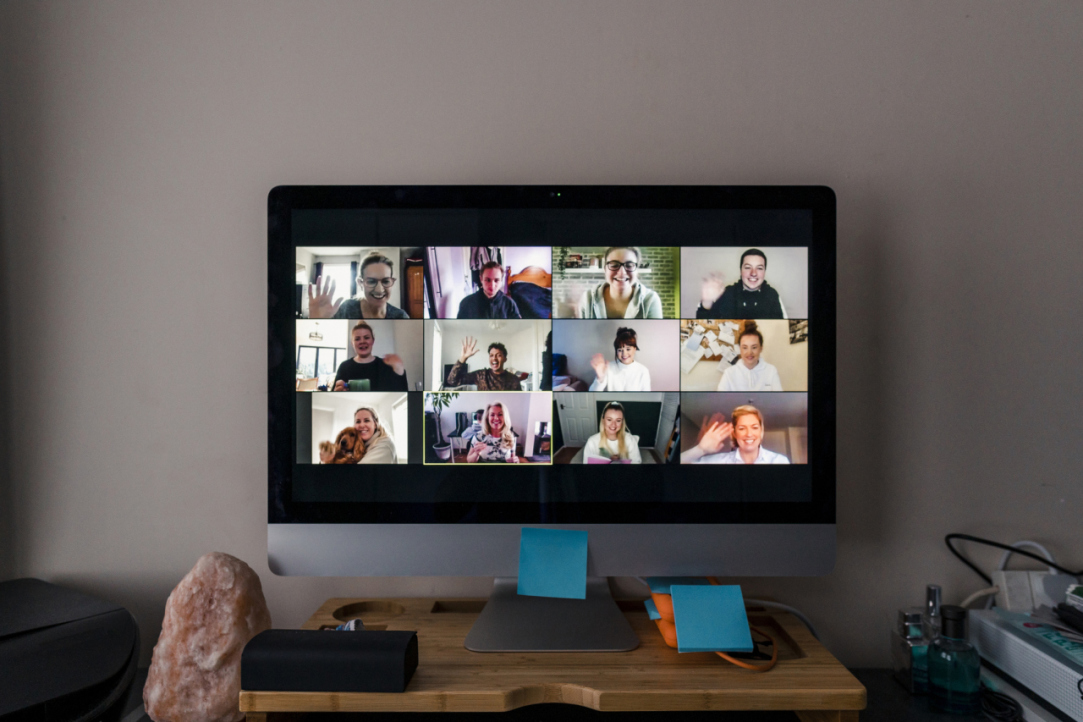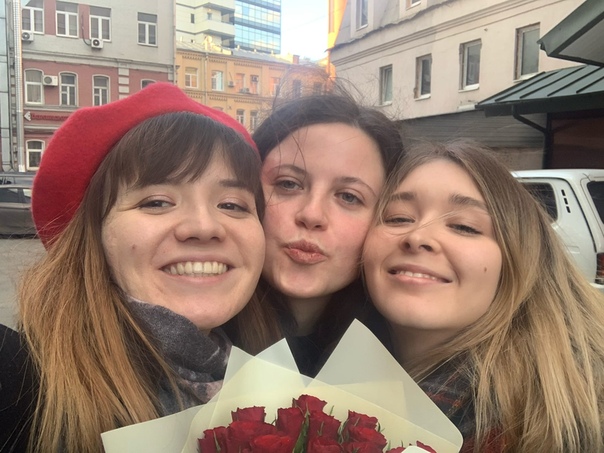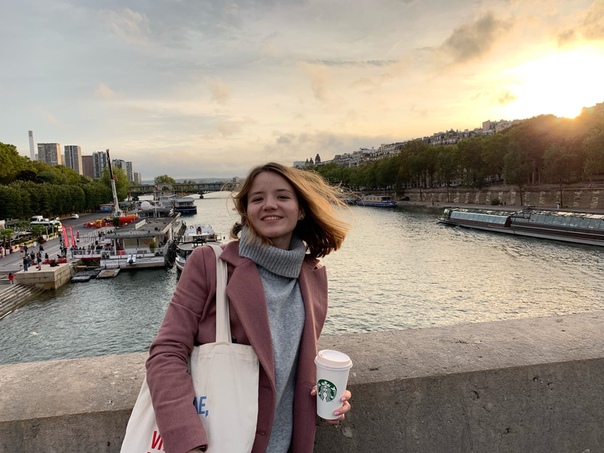‘The First Meetings Exceeded All Our Expectations’

How can you meet new people beyond your university and your immediate professional circle? Is it possible to make new friends during the pandemic when we are all self-isolating? Renata Sabirova, a fourth-year student of the HSE Faculty of Law and co-founder of the online chat service, Neplokho Poboltali (‘We’ve Had a Nice Chat’), helps answer these questions. She spoke with the HSE News Service about online lounges that are open to the country and the whole world.
Coming up with the Project Idea and Its Uniqueness
While I was sitting in quarantine, I realized that my university studies and carefree student life were going to come to an end soon. And my older friends have always said that as soon as work becomes the main thing in your life, you meet fewer and fewer new people. I started thinking about possible solutions for this problem. I looked at distance networking services, and found only Random Coffee and OnlineBar. I tried to participate in the former, but unfortunately didn’t like the result. In Random Coffee you talk one-on-one, rather than in a group, and it’s often difficult to find mutual interests with one person (particularly because the people in the app can talk only for 15 minutes). I decided that since there is no ready-made solution, I should make it myself.
The Evolution of the Project and the First Meetings
Neplokho Boboltali (We’ve had a nice chat) is a group of online lounges that bring people with mutual interests together. We use a questionnaire to learn about the participants’ interests. Then, we form groups for the meeting, come up with a joint idea and a topic, and moderate the talk.

Our first two meetings happened on one day: each lasted two hours with a five-minute break! We were exhausted, but everything went well, I would even say that the meetings exceeded all our expectations. I remember talking to a group of travellers and cinema lovers, and we were surprized how different these talks were.
While the travellers spoke loudly and joked a lot, the talk with cinema fans was much calmer, more thoughtful and measured.
It was interesting to observe this transformation, both in the communication, and in ourselves.
Each talk involves 10 to 13 participants (we deliberately avoid increasing the number, otherwise it is harder to involve everyone in the conversation). The participants’ age varies from 17 to 33, but mostly, the project attracts people aged 20 to 25. Our geography is wide: the online format helps us to go beyond Moscow, so we’ve had people from all over Russia (St. Petersburg, Krasnoyarsk, Magnitogorsk etc), as well as Italy, France, Germany, Austria, Sweden, Belarus, Ukraine, and Kazakhstan.
We have held ten meetings already. Besides cinema and travel, we’ve discussed recent news, philosophy, space, psychology, and music. Once we even had a poetry night.
Team Work and Some Useful Skills
I launched Neplokho Poboltali with two friends from class: Lera Romanova and Nika Shekhovtsova. We have three key tasks in the project: publishing posts, designing meetings, and analysing questionnaires. During the first week, we split the tasks among the three of us, discussed what each of us had done, and then, we made everything public. But it turned out that analysing questionnaires is one of the most time-consuming tasks, so now, we work on it together. We have a draft plan of what we should do and how many meetings we should organize. I schedule the tasks, and we share them depending on our workload and preferences. We still discuss and develop everything together. After several meetings, we’ve had two new moderators and an illustrator (a participant of one of the meetings who wanted to help us with the visuals). But as for most of the work, it is still done by the three of us.

The project gives me an opportunity to develop my organizational skills and my ability to delegate tasks (but it is still hard for me). It is also an interesting experience of organizing and involving strangers in conversation in a rather short span of time.
The Future of the Project
Initially, I wanted the meetings to be held offline, but the pandemic forced me to change the plan. I think that in the future we can organize offline meetings for those interested, but we have not thought through this in detail. Our first meetings attracted a lot of people from outside Moscow, so we have something to think about. Particularly because they are already asking when we will be able to meet up in our virtual lounge again.
See also:
Real Tasks and Direct Interaction with Employers: HSE School of Foreign Languages Holds Poster Session
For the second time, the HSE School of Foreign Languages has held a defence of specialised projects developed by fourth-year students of the Bachelor’s Programme in Foreign Languages and Intercultural Communication. Representatives of major companies and organisations that support the school’s project activities gathered to evaluate the projects during a poster session.
Scientarium: Integrating Student Scientific Associations and HSE University Projects
In early July, the Voronovo Study Centre hosted Scientarium, an off-site session for representatives of HSE University student research communities organised by the university’s Centre for Student Academic Development and Unit for the Popularisation of Science. More than 50 students from 10 scientific student associations and three campuses took part.
From Ingenious Fungi to Post-feminism: HSE University Hosts Season’s Last Science Battles Semi-Final
Season VI of Science Battles at HSE University is entering the homestretch. The June semi-final determined the list of finalists and helped many viewers choose their favourites. This time, young researchers decided to figure out how to conduct a police lineup without destroying a person’s life, as well as how to improve a child’s academic performance without instilling neurotic perfectionism. They also found out that fungi and mould help heal scars and save the environment, and that adherents of post-feminism have very mixed feelings about their own images on TikTok.
Smart Medicine, Libration Points and Electromyographic Bracelets: MIEM Students Present Their Projects
In February, a two-day poster session - the second checkpoint of the project life cycle - was held at the HSE MIEM. The participants prepared colorful posters, talked with experts and MIEM students and received well-deserved plaudits. Here, the HSE News Service looks at some student projects.
Submarine and French Confectioner's Shop—Winners of the Top Class Research Competition Announced
This year’s final stage of Top Class, the All-Russian Competition of Schoolchildren’s Research and Projects, held by HSE University, has come to a close. About a thousand 8th—11th graders from 7 countries and 69 regions of Russia participated in the contest. The winners and runners-up were announced at the closing ceremony in the HSE Cultural Centre. They received special prizes from partner companies.
Winning Research Initiative Projects to be Implemented by the End of 2022
In April, the results of the Research Initiative student project competition were announced at HSE University. Twenty-two team applications were submitted by students of 20 different fields of study at HSE University’s campuses in Moscow, Perm, and Nizhny Novgorod. Based on the results of expert assessment, the competition committee approved 17 interdisciplinary projects to be implemented by December 2022.
HSE University Holds School of Snow in Perm Region
On February 15–17, the Winter SOS (School of Snow) was held at the Zhebrei ski resort. The event was organised by the HSE Perm Tourist Club and the Student and Alumni Centre. In addition to learning to ski and snowboard, students from all HSE University campuses developed and defended projects focused on the development of domestic tourism in their regions. SOS participants shared their impressions with the HSE News Service.
Registration Opens for ‘Research Initiative’ Team Project Competition
The HSE Centre for Student Academic Development has started accepting applications for the third ‘Research Initiative’ student team research project competition. Bachelor’s and master’s students from all HSE campuses are eligible to participate. The competition gives students an opportunity to not only take on research roles, but also to try their hand at working as academic managers and supervisors of a small research team. Registration will remain open until February 28.
HSE Master’s Students on the Professions of the Future
Students in the Transmedia Production in Digital Industries Master’s programme have done a project on the professions of the future. Covering trends and key professions, the project helps students assess potential academic trajectories. The main part of the project is a non-fiction book ‘What’s Next? Professions of the Future’, which is based on the ‘Androids and Electric Sheep’ podcast by Forbes and X5 Group. The book has been published on the Ridero platform.
‘Our Distinction Is Our Core Areas of Research’
In his interview for the HSE LooK, Evgenii A. Krouk, the Acting Director of HSE Tikhonov Moscow Institute of Electronics and Mathematics, talks about the distinctive features that set the institute apart, the place of project-based learning on the curriculum, research areas with the highest potential, and his vision for HSE MIEM future development.


